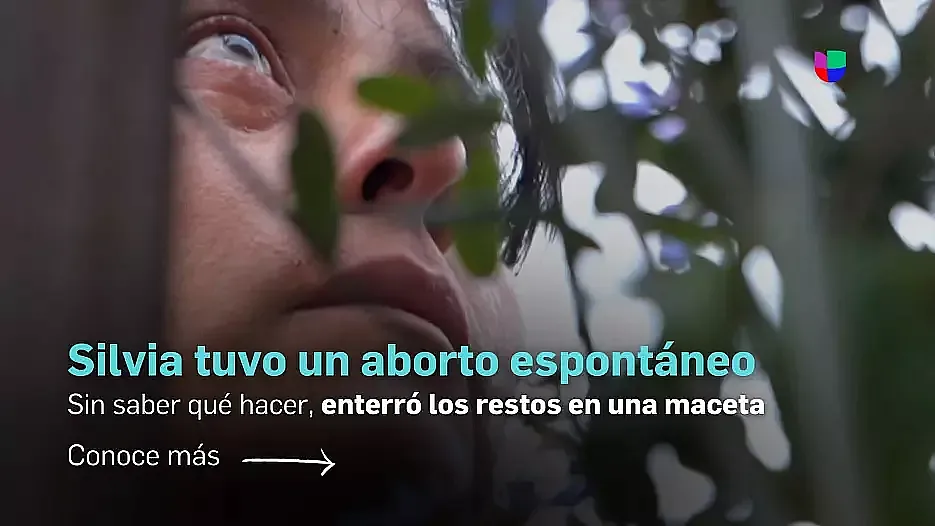“My Baby Fell Out in the Shower”: An Indigenous Mexican Mother’s Account of Miscarriage
The story was co-published with Univision Sacramento as part of the 2024 Ethnic Media Collaborative, Healing California.

SACRAMENTO, California. - Silvia Perez was preparing to become a mother; she is an indigenous Mexican living in Northern California. However, a miscarriage, which she was not expecting, changed her life.
“One day I went [to the doctor] and he told me that my baby was dead, I never thought that would happen to me,” explained Silvia Perez in tears.
In the course of five days, her life changed completely when the hospital informed her that her baby no longer had a heartbeat.
Silvia describes everything as confusing, from then on. Her nerves, her sadness and her limited command of Spanish all came together to make her feel vulnerable and isolated.
The medical records show that Silvia experienced a miscarriage. In addition, it is noted that she tested positive for COVID-19.
At the hospital, she was given Misoprostol to induce an expulsion of the fetus, and then she was sent home.
“I was in the shower and suddenly I felt labor pains. My baby fell. It fell right there in the shower.”
It was then that she was faced with a heartbreaking question: What to do with the remains? Alone and confused, she buried her baby's remains in a flowerpot.
An indigenous Mexican Mother’s Account of a Miscarriage
Impact on Women’s Mental Health After Miscarriage
It is common for women to be discharged after a miscarriage occurring in the first 20 weeks of pregnancy. However, the San Joaquin General Hospital, according to an email we received, states in their policy that they must provide a bereavement packet in an appropriate language, which includes local resources and a mental health brochure.
Silvia reports receiving only documents about her condition and the pills in Spanish, with no additional resources.
About 20% of women who experience miscarriages suffer from depression and anxiety for 1-3 years, according to one study. Despite this, the psychological impact is often overlooked as it is common and medically straightforward to treat.
In the study, although 9 of 10 of the women wanted follow-up psychological care from their physician, only 3 received it.
Challenges in Accessing Interpretation services in California Hospitals
In California, while there are no laws requiring mental health support for women after miscarriage, there are laws requiring access to interpreting services.
California Health and Safety Code 1259 requires hospitals to provide translation if 5% of the population served speaks a specific language. However, the challenge arises because, according to the San Joaquin County census, Latinos represent 43% of the population, but the language they speak is not specified.
In fact, there is no accurate estimate of how many indigenous farmworkers live in the area, but one study conducted in 2010 suggested that there were about 120,000 indigenous Mexican farmworkers in California. This is crucial for mental health, as understanding and being understood is of utmost importance, considering that 68 languages are spoken in Mexico alone, in addition to Spanish.
“Overcoming this requires a community, it also requires treatment and knowing that you're not alone. And that is the challenge that indigenous Mexican women face... they feel alone,” Dr. Rodriguez explained.
Mental Health Resources in Sacramento
Consulate of Mexico in Sacramento
Free mental health window “Mente Sana, Vida Sana” (Healthy Mind, Healthy Life)
Simultaneous interpreting services in most of Mexico's indigenous languages are available.
Phone: (916) 556-3344
Mental Health Resources in San Joaquin County
El Concilio
445 N. San Joaquin St.
Stockton, CA 95202
Phone: (209) 444-8910
CIELO
Simultaneous Interpreting Services: (323) 397-5379
National Mental Health Support
- National Suicide Prevention Lifeline: Dial any 988-phone number and you will receive care, no matter where you are in the United States.
- SAMHSA's National Helpline: English and Spanish-language care for individuals and families facing a mental health or substance use crisis. Hotline: 800-662-4357.
- Teen Line: Professionally trained teen counselors provide support and resources to other teens in an effort to destigmatize and normalize mental health. Hotline: 800-852-8336 from 6:00 a.m. to 10:00 p.m.
- Love is Respect: Providing support, information and advocacy for people involved in an unhealthy or abusive relationship. Call 866-331-9474 or send a text message to 22522 that reads "LOV".
